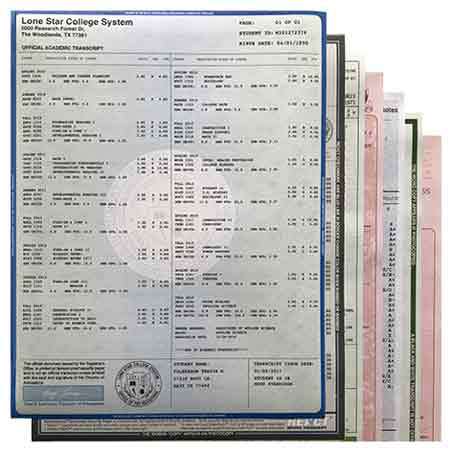Many people are tempted by the idea of fake transcripts when they feel desperate about admissions, jobs, or credential gaps, but using fake transcripts carries serious legal and ethical consequences that can ruin careers. Employers, universities, and licensing boards increasingly use verification services and background checks that detect altered or fabricated documents. If you’re discovered using fake transcripts, you may face immediate dismissal from a position, revocation of an academic offer or degree, financial penalties, and even criminal charges depending on local laws. Beyond legal trouble, reliance how to order fake transcripts on fake transcripts corrodes trust and closes doors permanently.

The academic and professional consequences of relying on fake transcripts extend far beyond the initial transaction and often include lifetime reputational damage. Universities consider falsifying academic records a major integrity violation that can lead to expulsion and the erasure of degrees; professional organizations may strip certifications and bar you from future licensure. When you weigh these outcomes, the short-term gain of fake transcripts becomes a long-term catastrophe. Instead of risking your future, it’s crucial to explore legitimate routes such as transcript replacement, appeals, or courses to bolster your credentials.
If your real transcripts are missing, damaged, or incomplete, many schools and colleges offer formal processes to obtain official replacements without resorting to fake transcripts. Most institutions have a registrar’s office that can issue certified copies, provide electronic official transcripts, and help correct errors through an established review procedure. For graduates of closed institutions, state education departments or national repositories often hold archived records and can guide you on obtaining authentic documentation. Using official channels protects you legally and provides verifiable proof accepted by employers and other schools.
There are ethical ways to address gaps in education or low grades that don’t require fake transcripts and that actually strengthen your profile more sustainably. Consider retaking courses, enrolling in accredited continuing education, or completing certificate programs that demonstrate current skills. Many employers value demonstrated ability and recent coursework over historical grades. By focusing on legitimately earned qualifications instead of fake transcripts, you build confidence and a record you can proudly show and defend during audits or interviews.
If cost or bureaucracy prevents you from getting official transcripts, look into financial aid, fee waivers, or third-party services that help navigate transcript requests rather than fake transcripts. Some institutions offer reduced fees for current students or alumni facing hardship, while nonprofit organizations and career centers can assist with document procurement and authentication. There are also verified digital transcript services and centralized platforms that simplify ordering legitimate records—these secure, lawful options preserve your integrity and are accepted by the vast majority of academic and professional bodies.
When employers or schools ask for transcripts, being transparent about gaps or irregularities is almost always a better path than submitting fake transcripts. Honest explanations, supported by alternative evidence such as portfolios, letters of recommendation, and certificates, can mitigate concerns and sometimes lead to conditional offers or probationary arrangements. Admissions officers and hiring managers often appreciate candor and contextual information more than a perfect but fraudulent paper trail created by fake transcripts.
If you’re worried about background checks catching fake transcripts, understand that modern verification services and networks of institutions make detection increasingly easy. Employers use direct verification with registrars, digital credentialing platforms, and third‑party audit services that compare records against original databases. People who used fake transcripts have been stripped of job titles, had offers rescinded, and faced legal action. Protect your future by avoiding fake transcripts and investing in legitimate credentials that cannot be undone.
Finally, if you’ve already been offered or have used fake transcripts, take corrective action immediately: stop using them, consult a legal advisor, and contact the issuing institutions to discuss proper remedies. Many organizations will work with individuals to restore credibility through reenrollment, appeals, or supervised pathways to certification. Turning away from fake transcripts and toward lawful, transparent solutions is the fastest way to repair harm and rebuild a trustworthy professional and academic life.
If you want, I can now help you with any of the legitimate alternatives mentioned above: draft an appeal letter to a registrar, find steps to request an official transcript, outline a plan to rebuild credentials with certificates and online courses, or write a candid explanation template for employers or admissions committees. Which of those would you like me to do next?
